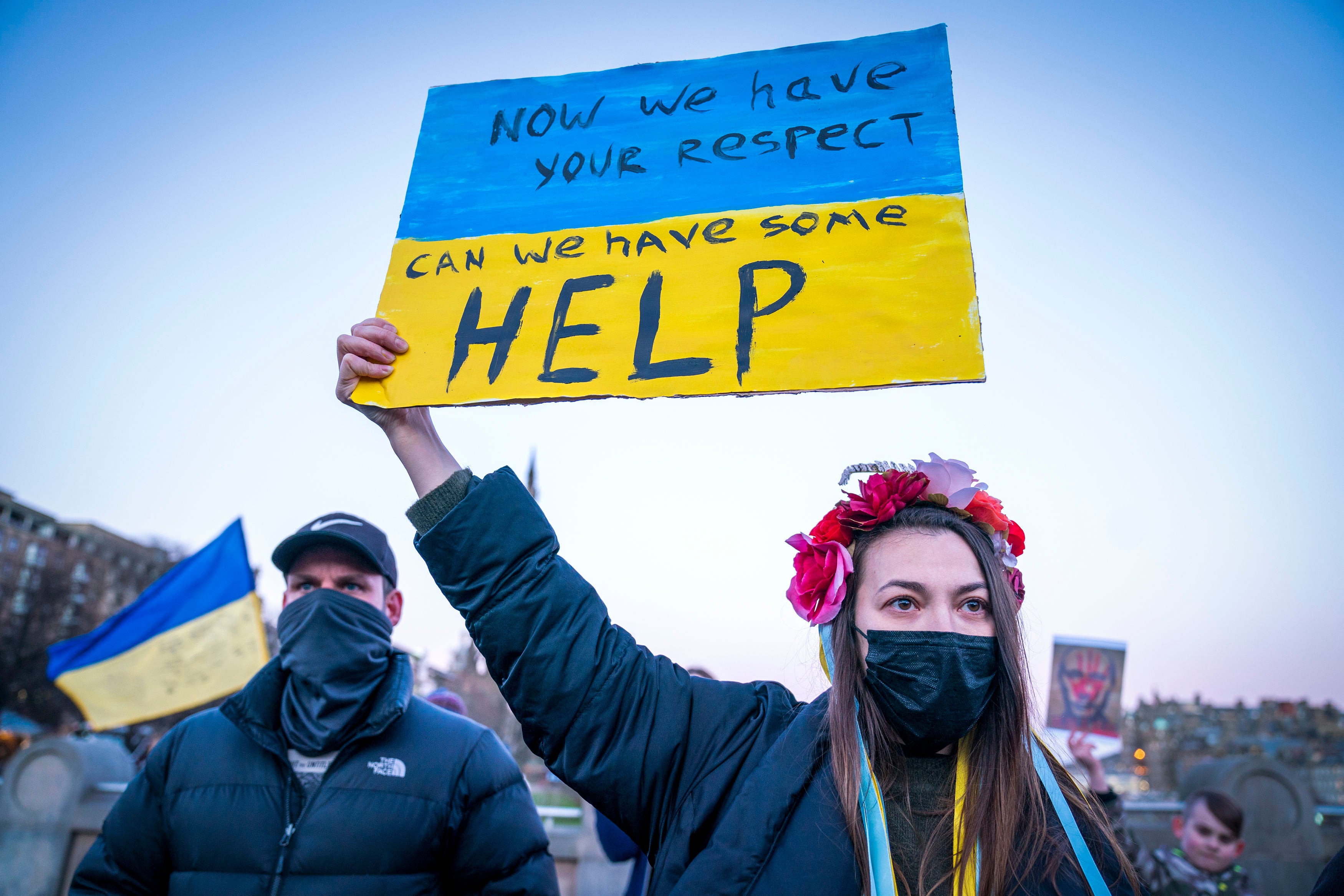I’ve spoken with the Ukrainian government and I’m sending aid where it needs to go
When you respond to a humanitarian crisis, you are effectively coordinating an event. You’re deciding who’s a trusted mayor, who’s a trusted partner for distribution, what town is going to end up overlooked, how many truckers you need. I plan to get out there myself as soon as I can


Your support helps us to tell the story
From reproductive rights to climate change to Big Tech, The Independent is on the ground when the story is developing. Whether it's investigating the financials of Elon Musk's pro-Trump PAC or producing our latest documentary, 'The A Word', which shines a light on the American women fighting for reproductive rights, we know how important it is to parse out the facts from the messaging.
At such a critical moment in US history, we need reporters on the ground. Your donation allows us to keep sending journalists to speak to both sides of the story.
The Independent is trusted by Americans across the entire political spectrum. And unlike many other quality news outlets, we choose not to lock Americans out of our reporting and analysis with paywalls. We believe quality journalism should be available to everyone, paid for by those who can afford it.
Your support makes all the difference.I first heard about the situation in Ukraine through social media. I’m the kind of person who listens if 10 people start saying the same thing, and all of a sudden my feed was filled with images and discussions of refugees, tanks and bombs, moms and kids fleeing destruction and war. My immediate thought was: we’re about to see a massive humanitarian crisis and an exodus of people. I knew I had to do something.
When you respond to a humanitarian crisis, you are effectively coordinating an event; you use all the same skills. You’re deciding who’s a trusted mayor, who’s a trusted partner for distribution, what town is going to end up overlooked because it’s in a hard-to-reach place or it isn’t making the headlines, how many truckers you need to transport food and equipment from one place to another.
So my mandate for Ukraine is: refugees out, aid in. We have $10 million worth of aid being transported from a warehouse, likely into Poland, and driven into Ukraine. We’ve connected with two trusted people inside the Ukrainian government and that’s going to help us with getting that aid in safely and distributing it sensibly. And when it comes to refugees, it’s a constantly shifting thing. Camps are temporary, but they are good places to connect with people and they have their uses. Bear in mind that not everybody wants to leave a camp and move into a different country, even if many do; some want to linger and wait to see if the conflict dies down and they can return to their homes. And a camp is a good place to go to where you can ask people directly: What do you want? What do you need?
I do want to go to Ukraine myself and I’ve been looking into how to do that. I had a plan to go to Poland and help with those distribution lines, but where my crew is on the Ukraine-Poland border there’s no cell service or internet available at the moment. That makes the trip impossible, because I need to be able to plan and strategize and stay in touch with my team. Once we fix that problem, I intend to get out there on the ground.
I worked to coordinate aid in Puerto Rico after Hurricane Maria, where I saw what happens when some organizations fail to do things right. Everyone was bringing aid into San Juan back then, to the point where there was an overload, and people in the hills and mountains were doing without. That’s why you have to be agile and you have to be nimble — it’s important to be able to respond to a situation as it changes. You’ll see plenty of celebrities right now sharing pictures with links to large organizations at the bottom — but if you’re a massive organization who needs approval from 200 people and a discussion with the government before you can do anything, then those affected by the conflict suffer. We’re getting out there and we’re not charging back 40% of what’s donated for staff hotel rooms.
On a personal level, of course I sometimes find it hard to deal with the traumatic information and imagery I’m presented with. I see people sharing pictures on Twitter of Ukrainian men and women with their legs blown off. It’s insane to think someone can sit behind a screen and casually share those pictures, while for the person whose leg is gone, their whole life has changed — their future, their medical care, their opportunities, everything. I think about the thousands of people who will now be living with PTSD for the foreseeable future, and then I think about the people who are just mentally and physically exhausted, who are navigating a war during a pandemic with lowered immune systems and children to look after and everything they own stuffed into a bag on their backs.
I’m not the type to go and lie in a corner and cry when I see something like that, but it does get to me sometimes. After days of being in business mode, having long conversations with people in the Ukrainian government and working out logistics for truckers carrying aid, I could barely sleep last night. I wound up having crazy dreams of walking round Ukraine and seeing refugees. It was that kind of sleep where you’re working even as you’re sleeping; you wake up and you feel like you’ve climbed a mountain. And then you just have to keep working and hustling again because what’s happening out there is a nightmare. I keep thinking about what it would be like if I suddenly had to pack up with my family and leave my state under similar circumstances.
We’ve done this before in the pandemic with PPE, and during other humanitarian crises in Australia, Puerto Rico, Haiti, the Bahamas and more. When you’re a small philanthropic organization, you can keep learning according to the information at hand. During the pandemic, we started off thinking we might hand out protein bars and survival kits to exhausted moms, and we ended up pivoting into making face masks and giving out PPE to fire stations and hospital workers. People appreciate when you’re the kind of organization that can respond like that; everyone wants transparency and they want to feel like they’re making a difference.
Right now, we’re raising about $1 million per day for Ukraine and I’m prepared to run this philanthropic organization like a not-for-profit business. You can only help people if you’re smart, organized and transparent. You can’t just dump a bunch of aid somewhere and hope things work themselves out.
Donate to Bethenny Frankel’s aid organization BStrong here